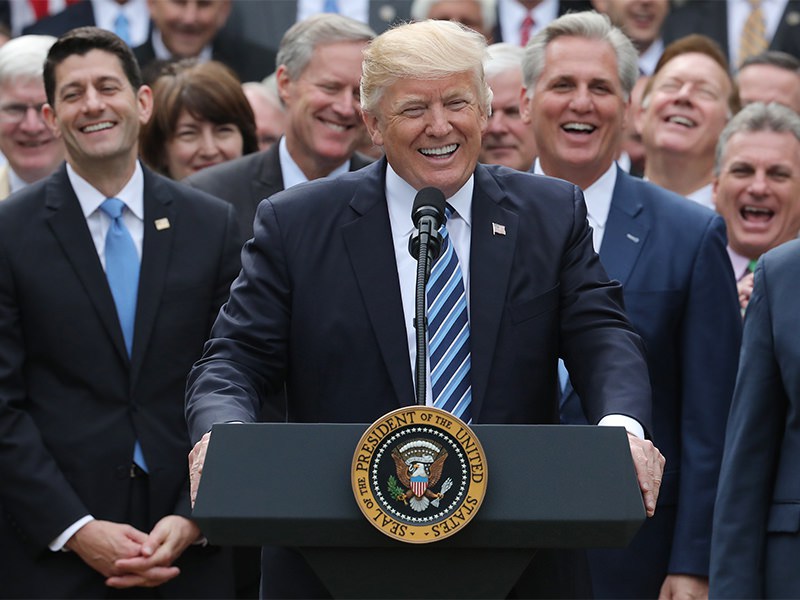
By Liz Theoharis
Religion News Service
May 5, 2017
NEW YORK (RNS) If the sweeping new health care bill approved by the House passes the Senate next month, it will mean a literal death sentence for many poor people so that a few wealthy elites can acquire more and more.
Indeed, the bill cuts about a trillion dollars in funding for health care while reducing taxes for the wealthiest 2 percent of Americans by about the same amount.
One of the big controversies with this bill involves coverage for people with pre-existing conditions. An amendment to the bill that claims to cover people with pre-existing conditions does so at such a high cost that it, too, is a death knell. A recent report from the AARP projects that under the proposed bill, “high-risk pool premiums for people with preexisting conditions could be as high as $25,700 annually,” an amount that exceeds the 2016 poverty threshold for a family of four.
A debate about health care and the value of the lives of everyone — including poor people, women, the elderly and immigrants — is raging in our society. On Monday, Rep. Mo Brooks, R-Ala., used religious language to argue against a health care plan that protects people with pre-existing conditions, insisting “people who lead good lives” and “have done the things to keep their bodies healthy” should receive reduced costs for health care.
Brooks has categorized people as deserving and undeserving, and has used God to blame the sick for their sickness. Where are the moral voices opposing him, condemning this act of sending tens of millions to the ranks of the uninsured, of damning those with pre-existing conditions or too little money for higher premiums to the hell of no health care and the dance with death?
Where are the prophets of our day echoing Isaiah, “Woe to those who make unjust laws, to those who issue oppressive decrees, to deprive the poor of their rights and withhold justice from the oppressed of my people, making widows their prey and robbing homeless children” (Isaiah 10)?
Where are the so-called evangelical Christians who have been so loud on certain moral issues — prayer in public schools, abortion and homosexuality — but so soft on access to health care and the sanctity of life? Or will they only speak up to damn millions of God’s children to poverty?
The glaring health care crisis creates an environment in which congregations must determine what kind of relationship they want to have with families in health crisis and to a political system that devalues life by throwing millions off the insurance rolls but putting billions of dollars into weapons that kill people all over the world.
We can turn to our holy Scriptures for guidance on how Jesus and the prophets approached health and health care. Our Bible shows us that the bill passed in the House on Thursday (May 4) is anathema to a Jesus-care plan.
Mark 5:25-34, for instance (and also Matthew 9:20-22), tells the story of a woman who has been hemorrhaging for a dozen years. She has gone to doctors who have not helped her; she has spent all the money that she has and still hasn’t been healed. She may not have children, and in the society she is a part of, if she was not married before her illness, she probably has not found someone willing to marry an infertile woman. So, along with being sick and poor, this woman may have no one to care for her as she grows older.
But with Jesus, this woman is healed. Not only does the bleeding stop, but her disease is cured. She is restored into the community. Jesus says to this woman that her faith has made her well.
Jesus didn’t ask for an insurance card or for any payment whatsoever from the people he healed. Indeed, Jesus believed in universal health care and set up free health care clinics as he traveled throughout the land. There is a multitude of stories, especially in the Gospel of Mark, of Jesus healing the sick. Jesus’ first patient is a leper. Before being healed, the leper says “if you choose, you can make me clean.” “I do choose” is Jesus’ reply.
We, too, could choose to heal the millions of sick in this country who simply can’t afford health care and medicine. Instead, we threaten to take away what help they have.
So, what is demanded of us in these times? Just as in the 1960s (with the Southern Christian Leadership Conference and other civil rights organizations) and in the 2000s and 2010s (with the Health Care is a Human Right campaign, and the Moral Mondays and other movements), we need to continue to bring the urgency of the needs and demands of those most impacted by the injustices we’re facing through nonviolent mobilization and direct action.
Instead of repealing the ACA and cutting Medicaid, we must advocate for universal health care. We need to take the profit out of health care and prioritize the people first. We need to wage a battle for hearts and minds that is rooted in deep moral and rights-based values.
We need to declare that the deepest public concerns of our faith traditions are how our society treats the poor, those on the margins, the “least of these”; equality and representation under the law; and the desire for peace, love and harmony within and among nations. We must take up the call of the Rev. Martin Luther King Jr. in 1967 to bring the poor together across race, creed and place and truly combat racism, economic exploitation and militarism. We must build a new Poor People’s Campaignfor today.
Read on Religion News Service